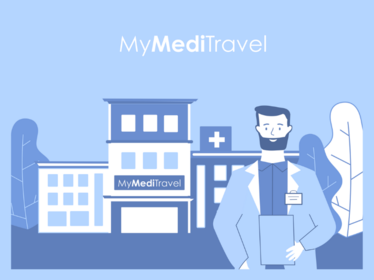Rheumatology in Bogota
Search and Compare the Best Clinics and Doctors at the Lowest Prices for Rheumatology in Bogota
No Time?
Tell us what you're looking for and we'll reach out to the top clinics all at once
WHY US?


No Time?
Tell us what you're looking for and we'll reach out to the top clinics all at once
Rheumatology is a branch of medicine that focuses on the diagnosis and therapy of conditions that affect joints, bones, tendons, ligaments, and muscles, including those known as rheumatic diseases, or autoimmune conditions. Physicians who have had special training in rheumatology are called rheumatologists. Some of the conditions that rheumatologists diagnose and treat include:
Chronic back pain, Lupus, Inflammatory arthritis of the hips, knee, or shoulders, Rheumatoid arthritis, Tendinitis, Osteoporosis, Psoriatic arthritis, Osteoarthritis, Giant cell arteritis, Bursitis, Scleroderma, Behcet’s disease, Polymyalgia rheumatic, Paget’s disease, Polymyositis, Dermatomyositis, Ankylosing spondylitis, Gout, Reiter’s syndrome, Sjogren’s syndrome, Reactive arthropathies, Sarcoidosis, Idiopathic juvenile arthritis.
While rheumatologists diagnose and treat rheumatic diseases, they do not perform surgery. They perform examinations and procedures that help them diagnose, manage, and treat rheumatic conditions. These include:
- Complete physical exams.
- Lab tests, which usually involve taking samples of joint fluid, urine, or blood to check for anti-cyclic citrullinated peptides (anti-CCP) antibodies, synovial fluid, rheumatoid factor, erythrocyte sedimentation rate (ESR), and C-reactive protein.
- Imaging tests, such as X-rays, CT scans, MRIs, bone density scans (DXA), or ultrasounds.
- Lumbar punctures.
- Joint aspiration.
- Synovial biopsy.
- Joint injections.
- Bursal injections.
- Hyaluronic acid injections.
How Long Should I Stay in Bogota?
Rheumatology procedures are usually performed on an outpatient basis, meaning you should be able to leave the hospital or clinic on the same day. Depending on your condition and the type of procedure you will have, you may also be allowed to travel home immediately after. However, it is generally recommended that you stay for 2 to 7 days as you may need to attend a follow-up appointment to discuss the test results with your rheumatologist (if you undergo a diagnostic test) or to monitor your condition.
What's the Expected Recovery Time?
The recovery time depends on your specific condition. After the rheumatology procedure itself, you may not need any downtime, although you will need to take it easy for at least two days after some procedures, such as a lumbar puncture. If your condition causes painful symptoms, your rheumatologist will also recommend that you rest until the pain and discomfort subsides. Make sure to discuss your recovery timeline, including when you can return to work and perform strenuous activities.
What Aftercare is Required?
Your rheumatologist will likely prescribe you medications. It is important that you take the medications as directed. You may also be suggested to see undergo physical therapy or occupational therapy. Physical therapists will teach you exercises that can help you move your joints and improve their strength, while occupational therapists can teach you how to ease the strains on your joints when performing your day-to-day activities. Lifestyle changes are important as well, such as maintaining a healthy weight and staying active. Since most rheumatic diseases are long-term diseases, you probably will need regular checkups.
What's the Success Rate?
With cutting-edge technology, continuous research, and a better understanding of the joints, bones, tendons, ligaments, and muscles, rheumatology procedures are now more accurate and safer. The procedures are also highly successful, giving patients higher satisfaction rates and improvement in their quality of life.
Are there Alternatives?
The alternatives depend on your specific condition. It is best that you talk to your general physician first, who will be able to refer you to the relevant specialist. If you require surgery, for instance, you need joint replacement surgery, your rheumatologist will refer you to an orthopedic surgeon.
This information has been accurately sourced and verified by a medical professional for its accuracy, however, we strongly recommend you to consult with your doctor before pursuing medical procedures overseas.










